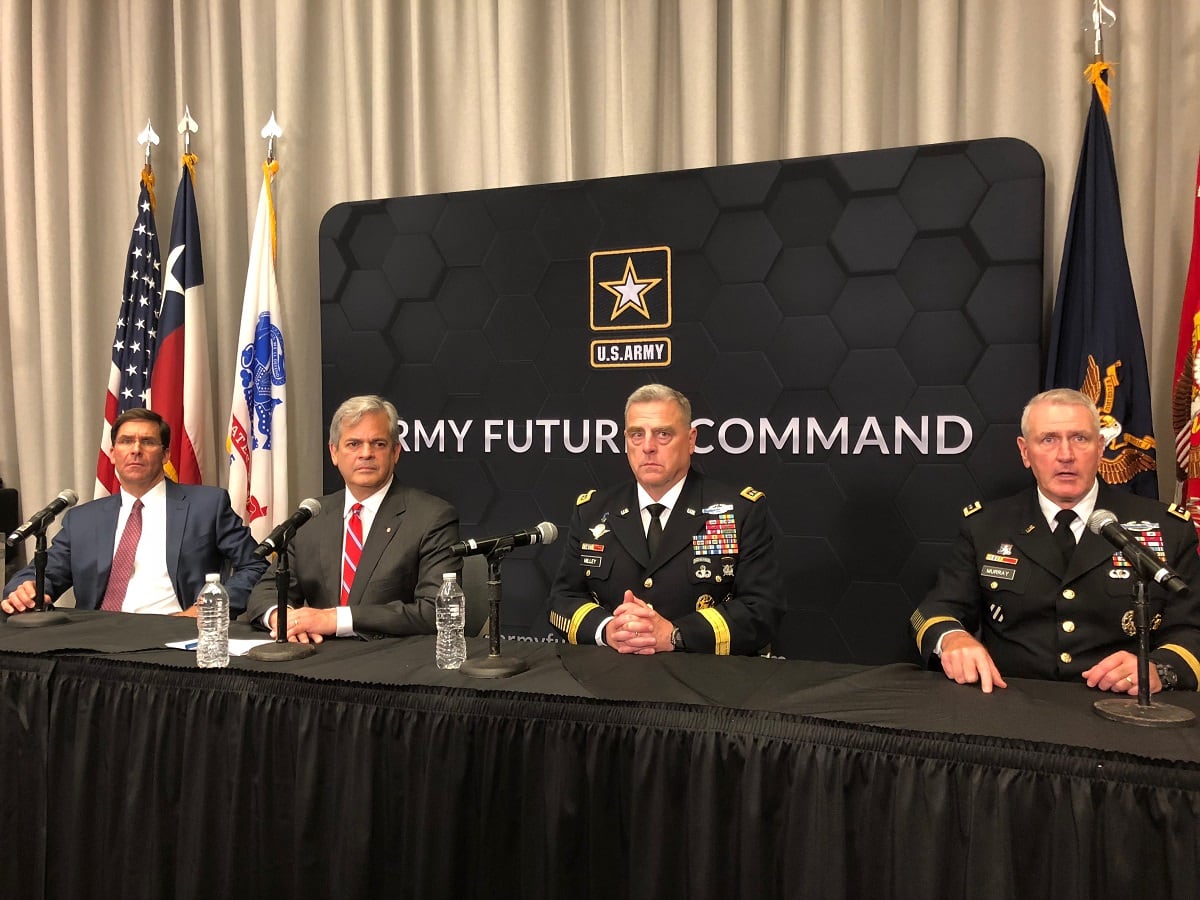WASHINGTON — The U.S. Army faces problems on multiple fronts when it comes to sending business to small companies, the head of Army Futures Command said Wednesday.
Gen. John Murray said small businesses struggle under a procurement system that can take years, and then struggle to scale their businesses to meet the Army’s needs.
“There is a lack of trust [on the part of small businesses] that the government can sustain [a] small-business model,” Murray told the audience at the third annual Defense News Conference. “The way we do budgeting, [program objectives memorandum] POM cycles and all that — a small business can’t survive. We’re going to have to prove to small businesses that we can adjust our POM cycles to meet their needs.
“And from the small business perspective, there are only a few ways that they can scale to the size we are talking about in terms of production. One of those ways is partnering with a traditional [defense contractor], so that’s going to be a challenge going forward.”
RELATED

Murray’s comments come as the Army tries to engage with a range of partners — from universities and small businesses to the traditional prime contractors such as Raytheon and General Dynamics — to find ways to integrate new technologies into the force.
The outreach to small businesses at Army Futures Command is about finding new ways to get after the challenges the service faces, Murray said, but that in and of itself comes with challenges.
“This outreach to small business is not because there is anything wrong with traditional defense primes, it’s really an outreach to find new ways to solve our problems,” he said. “I’ve been in the Army 37 years, and I think about solving our problems a certain way. I guarantee a lot of these small businesses think about how to solve problems a different way.
“Part of the challenge I have with small business is comfortably describing our problem to them. I can’t talk in acronyms, I can’t talk with 37 years of experience, I need to talk very clearly and very plainly.”
Murray said his teams have staged events aimed at the private sector, such as a recent one where startups gathered to figure out how to move artillery shells 250 meters using autonomous unmanned systems. Such events have been instructive, he noted.
Ultimately, however, the Army will choose the business that best meets the service’s requirements, he said.
“What it really comes down to is what are our problems and where is the best place — whether that’s small business or a university or a traditional prime — where is the best place to solve that problem,” Murray said.
David B. Larter was the naval warfare reporter for Defense News.






